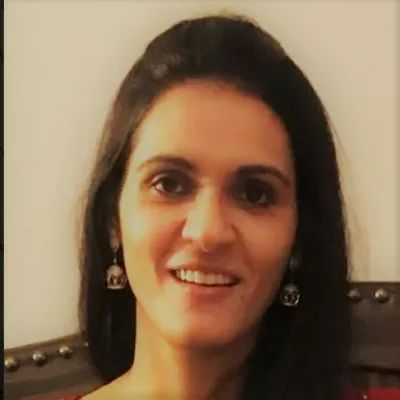
Project description
Assistant Professor in the department of GU oncology at Duke Cancer institute. My research interest is immuno-oncology with emphasis on investigating gut microbiome and metabolome as a predictor and modulator of response to immunotherapy.
𝐖𝐡𝐚𝐭 𝐝𝐨𝐞𝐬 𝐭𝐡𝐞 𝐁𝐢𝐨𝐜𝐨𝐝𝐞𝐱 𝐌𝐢𝐜𝐫𝐨𝐛𝐢𝐨𝐭𝐚 𝐅𝐨𝐮𝐧𝐝𝐚𝐭𝐢𝐨𝐧 𝐆𝐫𝐚𝐧𝐭 𝐦𝐞𝐚𝐧 𝐟𝐨𝐫 𝐲𝐨𝐮𝐫 𝐫𝐞𝐬𝐞𝐚𝐫𝐜𝐡?
It means a critical step forward towards advancing equity in research. Metastatic Head and neck cancer is a disease with poor treatment outcomes, we treat them with first line immunotherapy and if they do not respond, there are no effective treatment options thereafter. The median time in which most patients progress on immunotherapy is approximately six months, thus there is an urgent need to improve treatment responses. We conducted a study funded by the American Cancer Society where we found patients who fasted at night responded much longer to immunotherapy than patients who did not fast. We also found that the favorable effect of fasting was mediated by changes in microbiota. Before we could start recommending fasting to all head and neck cancer patients, we really want to know, “does this intervention equally work in all patient subgroups?”. Data has shown that African American patients with head and neck cancer have worse survival than Caucasian counterparts. They have different gut microbiota, different insulin resistance levels and thus may have different responses to fasting as opposed to Caucasian patients. Our initial study was conducted predominantly in Caucasian patients. Hence evaluating the effect of fasting in African American patients was a critical need. While we have significant number of African American head and neck cancer patients at Duke, we lacked the critical funding to kick start the study. Biocodex Microbiota Foundation grant helped us bridge that gap in addressing the critical gap in our knowledge. Success of this study will be a huge step forward in achieving equity in treatment and equity in an area of research where there is strong unmet need as oncology clinical trials do not fully represent our community of patients. We will be able to evaluate if time restricted eating changes the microbiota and has an effect on treatment responses in African American patients that is similar to Caucasian patients that we found in our first study.
𝐖𝐡𝐚𝐭 𝐝𝐨 𝐲𝐨𝐮 𝐞𝐱𝐩𝐞𝐜𝐭 𝐟𝐫𝐨𝐦 𝐭𝐡𝐞 𝐨𝐮𝐭𝐜𝐨𝐦𝐞𝐬 𝐨𝐟 𝐭𝐡𝐢𝐬 𝐫𝐞𝐬𝐞𝐚𝐫𝐜𝐡?
We anticipate that African American patients will reap the same benefit from fasting as Caucasian patients and then we would be able to confidently recommend fasting to all our head and neck cancer patient. While we are anticipating equal benefit in response, beauty of research is always in keeping an open mind and being able to explore all avenues. If the outcome are different from anticipated, we would use the information to explore other avenues including changing the duration of fasting or we may have to find a different way to modulate the microbiota. So, even if the results may not be as expected, we will learn so much from this study that we will surely identify targes and strategies to improve treatment responses in African American cohorts in a new way.
𝐇𝐨𝐰 𝐝𝐢𝐝 𝐲𝐨𝐮 𝐞𝐧𝐝 𝐮𝐩 𝐢𝐧 𝐭𝐡𝐢𝐬 𝐬𝐩𝐞𝐜𝐢𝐟𝐢𝐜 𝐫𝐞𝐬𝐞𝐚𝐫𝐜𝐡 𝐟𝐢𝐞𝐥𝐝?
I have been interested in microbiota research for the last 12-14 years, which was associated with my diagnosis of an autoimmune disorder when I was in my early 20s. There is a close link between gut microbiota and autoimmune disorders, and I started exploring the field more, just out of personal curiosity. It gave me a sense of control as it was something that I could work upon, to tame my own autoimmune disorder. Once I had decided on a career in oncology, I streamlined my interest in microbiome to help cancer patients. Microbiome research and its clinical applications is now a passion for me. From what I have seen in my clinical practice, whenever a patient is diagnosed with cancer, they suffer from loss of control. They inevitably want to change their lifestyle, diet etc. to be able to control the disease and improve their chances of survival. Modulation of microbiota via change in diet and lifestyle can help them regain some control over their disease course. I want to be able to partner with my patients and help them make these lifestyle changes in a way that has been scientifically proven to work. If I can do that, it is success for me, Whie we are currently evaluating behavioral interventions to modulate the microbiota, this is not to discount the potential for development of microbiota modulating probiotics or drugs, that can similarly improve treatment responses and my lab is working in parallel towards that aim as well. I foresee that new drugs and interventions can come out our microbiome research, that can change the trajectory of how we treat cancer to improve patient outcomes.
Final thoughts:
The Biocodex Microbiota Foundation is really doing amazing work because there are not a lot of foundations who exclusively support microbiota-based research. There is still a lot of skepticism in the medical world where medical experts and scientists don’t believe in microbiota, therefore I really am honored and grateful to be awarded this grant. It will help us fund critical research. The Biocodex Microbiota Foundation grant not only advances science, but it is advancing equity in research and equity in cancer care, which is what we really need, as we go forward in our scientific discovery. Dr. Bari also wanted to thank the Biocodex Microbiota Foundation scientific review committee for their feedback on the grant applications.
It is significant work to prepare and submit grant applications, it was encouraging to receive feedback on what the committee was looking for and the strengths and weaknesses of the application. Critical feedback helps us improve and is much appreciated. Diet, lifestyle, antibiotics, and other factors shape our microbiota and there is much more to discover. I look forward to contributing to the body of research and knowledge and explore new horizon of innovation.
USA's winning projects
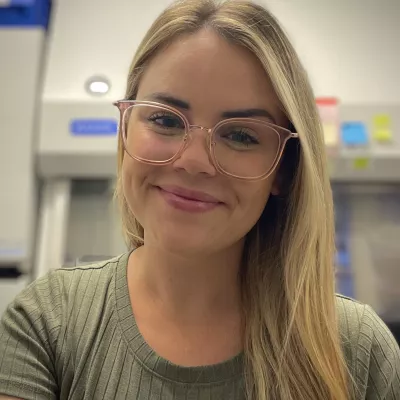

From Gut to Brain: Unraveling Microbiome Contributions to Neuroinflammation in Parkinson’s Disease
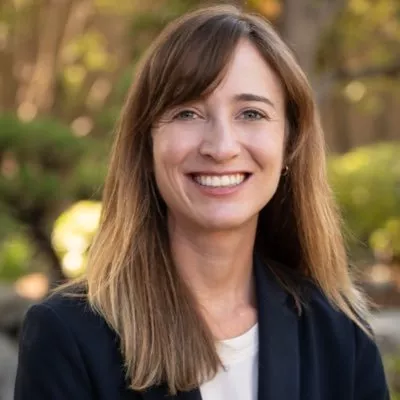

Fecal microbiome and association with clinical outcome and the tumor microenvironment in patients receiving pre-operative pembrolizumab with radiation therapy in early-stage triple-negative breast cancer
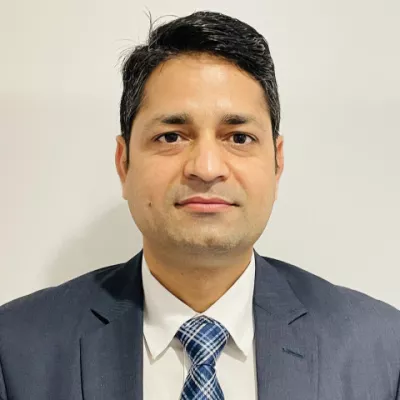

Does microbiome composition moderate CNS structure and function in a VPA-induced mouse model of autism?


Novel mechanisms and new pharmacological targets within the Brain-Gut Microbiome-Immune axis with the long-term goal of improving treatment strategies for MetS.


R-HTN-associated gut dysbiosis alters gut-brain axis and antihypertensive drugs’ efficacy
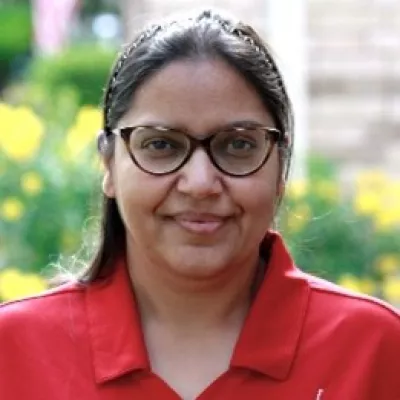

Flavonoids and Microbiome Interactions via Triple Recycling and their Roles in Food-borne Carcinogen-induced Colorectal Cancer

